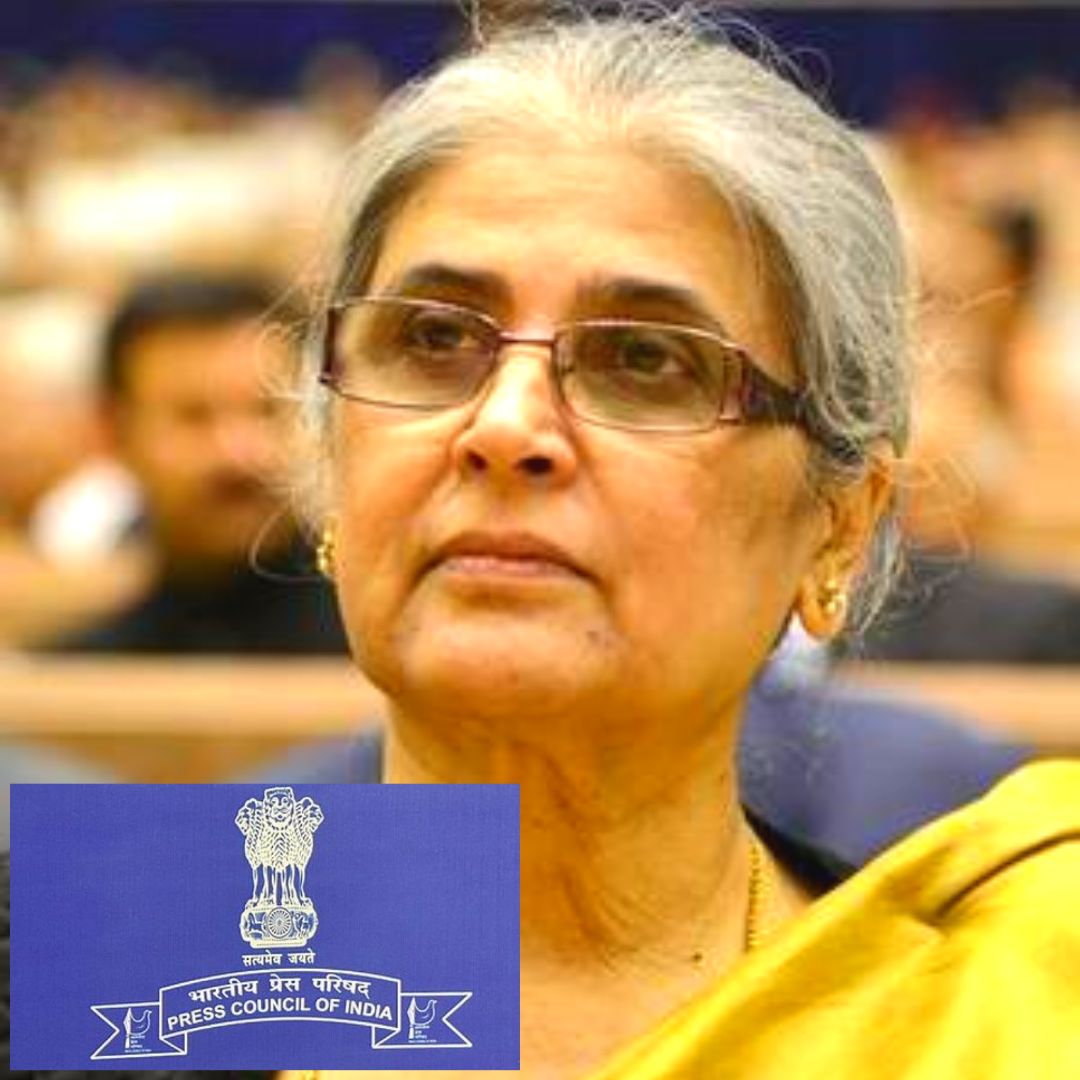Justice Ranjana Desai: From Family's Opposition For Practising Law To The Chairperson Of Press Council Of India
Writer: Shiva Chaudhary
A post-graduate in Journalism and Mass Communication with relevant skills, specialising in content editing & writing. I believe in the precise dissemination of information based on facts to the public.
India, 18 Jun 2022 1:09 PM GMT
Editor : Snehadri Sarkar |
While he is a massive sports fanatic, his interest also lies in mainstream news and nitpicking trending and less talked about everyday issues.
Creatives : Shiva Chaudhary
A post-graduate in Journalism and Mass Communication with relevant skills, specialising in content editing & writing. I believe in the precise dissemination of information based on facts to the public.
The 72-year-old retired Supreme Court judge has become the first woman to be appointed as the Chairperson of the Press Council of India (PCI). Here's the inspiring journey of Justice Ranjana Prakash Desai.
Ranjana Prakash Desai has become the first woman to be appointed as the Chairperson of the Press Council of India (PCI), with a formal announcement and gazette notification by the Government's Ministry of Information and Broadcasting.
The 72-year-old retired Supreme Court judge was cleared by a committee comprising Vice President M Venkaiah Naidu, PCI member Prakash Dubey, and Lok Sabha Speaker Om Birla. The post has been empty since Justice Chandramauli Kumar Prasad completed his term and left office in November 2021, as reported by The New Indian Express.
Background Of The Lawyer
Coming from a two-generation lawyer family on her maternal side and a renowned criminal lawyer for a father, Justice Desai and her two sisters were brought up in a very liberal environment, with freedom and support. However, she was shocked when her family opposed her decision to become a lawyer, too, especially her father and maternal uncle.
In an article she wrote for Bar and Bench, she said that her father was only being protective of her. He asked her if she would be able to deal with the kind of people that would walk into her office. He tried to persuade her to go to the London School of Economics for further education.
She also recalled the day she wanted to go to court with her father and how "shattered" she was when he wasn't too keen on that idea.
However, she had the constant support and push from her mother, who told her that if she wanted to do law, not even her father could stop her and that she should go to the Bar Council. She ended up sitting in the office of one of her barrister cousins who was leaving for the USA.
She started work in a small room of a building in Fort, Bombay, with a hunger for work, and after she won her first case of a bail plea, her father supported her completely.
Struggles With Career
Desai had graduated from Elphinstone College, after which she graduated in law from the Government Law College in Mumbai. She had enrolled in the Bar in 1973 and started practising before the Bombay High Court. She had an unsuccessful phase on the Original Side of the Bombay High Court, where being a woman became a drawback and obstacle for her.
After a junior got appointed as the Additional Government Pleader, when it was expected that she would be chosen, she was very close to resigning, which she didn't after a request from the Advocate General of Maharashtra.
Even after she was appointed the Government Pleader of the Appellate Side, she faced opposition and scepticism about whether she would be able to handle the work and the pressure, and she proved them wrong.
She was then appointed as a judge in the Bombay High Court in 1996 and received her Supreme Court judge nomination in 2011, which she retired from in 2014, as reported by Tribune.
She was then appointed as the Chairperson of the Electricity Appellate Tribunal for three years and the Chairperson of the Advance Ruling Authority [Income Tax] for the year after that, as reported by Deccan Herald.
Landmark Judgements
Justice Desai has been at the forefront of the judgements that she's been a part of. In the most recent cases that she's led, she was the head of the five-member panel formed by the Uttarakhand Government to examine the state's personal laws and effectively implement the Uniform Civil Code (UCC).
She was recently also the head of the Delimitation Commission on the Union Territory of Jammu and Kashmir, which was set up to assess and redraw the Assembly constituencies of the region. She also chaired the Lokpal Appointment committee constituted by the Government to search for members and a Chairperson who would make up India's anti-corruption agency, Lokpal, in 2020.
In 2013, she was one of the members of a three-member panel of the Supreme Court which ruled that elections should have a 'none-of-the-above' vote option, which would lead to a systemic change in polling, forcing parties to bring forward clean, effective candidates, as reported by The Hindu.
She was also part of the bench that ruled that women lawyers can appeal against harassment in a courtroom in a 2013 judgement. She was one of many SC judges who reprimanded a lower court for deeming 'wife-beating' as a normal facet of life in 2013. In 2012, she was a part of the bench that ordered the ruling Government to end the Haj Subsidy by the year 2022.
Also Read: First-Of-Its-Kind! India To Conduct Mega-Coastal Cleanup Drive Across 75 Beaches For 75 Days
 All section
All section















